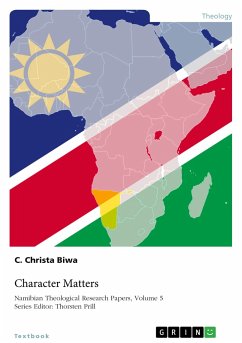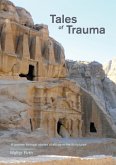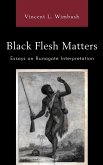Document from the year 2017 in the subject Theology - Biblical Theology, Namibia Evangelical Theological Seminary, language: English, abstract: There are many reasons why leaders, whether lay or ordained, are selected by African churches. Many Namibian church leaders tend to be appointed based on elements of both ascribed and achieved status, such as family origin, tribal background, gender, political affiliation, education or the roles they play in the business world or local government. By analysing the two lists of leadership qualifications for elders and overseers in the Pastoral Epistles (Timothy 3:1-7 and Titus 1:5-9) Christa Biwa demonstrates that such particularism is faulty. The criteria that mattered most to the apostle Paul and the early church were character and spiritual maturity. Church leaders, Paul¿s lists show, need to be people of integrity. As such they are patient, gracious and quick to forgive. They do not fall into the trap of materialism and never look for a fight. As people of integrity church leaders listen to the advice of others and treat the members of their churches with respect. The social status of their fellow believers does not influence their decisions. They can control themselves and love whatever is good. These are just some of the character traits Christa Biwa identifies, and which church leaders need to possess or strive for. Where these traits are missing, Biwa claims, the ramifications are many and widespread. Ethical misconduct by church leaders usually has an impact not only on individuals and their families but also on the local congregation, the wider church and the leaders¿ spouses and children. Therefore, like the apostle Paul and the early church, Christa Biwa argues, Namibian churches need to take the selection of their pastors, elders and bishops seriously. Paul¿s lists of leadership qualifications can help them to identify and appoint godly leaders. Character testing needs to be not only at the heart of any selection process but also a regular and ongoing element of leadership development.
Hinweis: Dieser Artikel kann nur an eine deutsche Lieferadresse ausgeliefert werden.
Hinweis: Dieser Artikel kann nur an eine deutsche Lieferadresse ausgeliefert werden.








